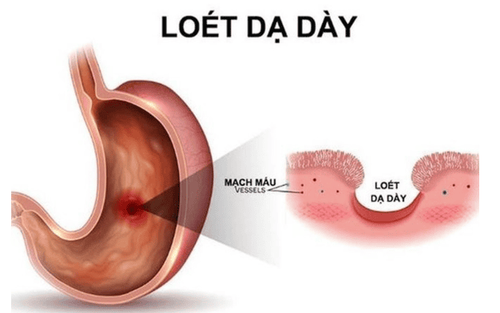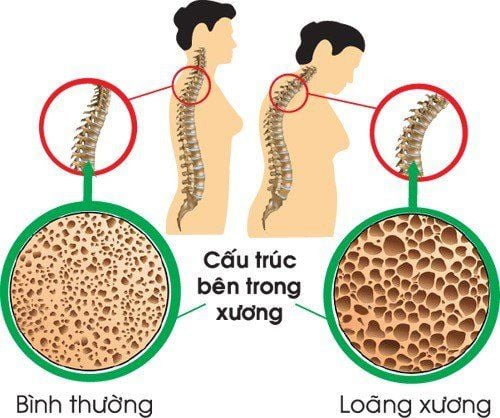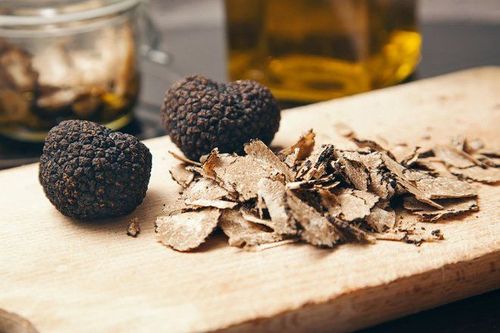This is an automatically translated article.
Wasabi, or Japanese horseradish, is a cruciferous vegetable that grows naturally along stream beds in valleys in Japan. This vegetable also grows in some geographical areas with humid climates. Known for its characteristic pungent flavor and bright green color, wasabi is a staple condiment for sushi and noodles in Japanese cuisine. The isothiocyanates (ITCs) that give this vegetable its flavor may offer a number of health benefits.1. Antibacterial effect
1.1 Reduce Food Poisoning Food poisoning is an infection or irritation of the digestive system caused by food or drink containing pathogens, bacteria, and parasites.
The best way to prevent food poisoning is to properly store, cook, clean and handle food. Certain herbs and spices like salt can reduce the growth of pathogens that cause food poisoning.
Wasabi extract has been shown to have antibacterial effects against Escherichia coli O157:H7 and Staphylococcus aureus, two of the most common bacteria that cause food poisoning in humans.
1.2 Stomach Helicobacter pylori H. pylori is a bacteria that causes infections of the stomach and small intestine. This is also the main cause of stomach ulcers, stomach cancer and inflammation of the stomach lining. Nearly 50% of the world's population is infected with HP, but most cases can be cured.
Treatment regimens for stomach ulcers caused by H. pylori bacteria usually use antibiotics and proton production inhibitors, which are drugs that reduce stomach acid production. Preliminary test-tube and animal studies suggest that wasabi may also help treat stomach ulcers caused by H. pylori.
However, more medical studies are needed to confirm the true use of wasabi in the treatment of stomach Helicobacter pylori.

Loét dạ dày
2. The effect of reducing inflammation
Wasabi is said to have strong anti-inflammatory properties. Inflammation occurs when the body's immune system responds to infections, injuries, and toxins to protect and heal the body.
When inflammation becomes uncontrolled and chronic, the body can be at risk for diseases including heart disease, diabetes and cancer.
Test-tube and animal studies indicate that the ITCs in wasabi have the ability to inhibit cells and enzymes that cause inflammation, including Cyclooxygenase-2 (COX-2); inflammatory cytokines such as interleukins and tumor necrosis factor (TNF). However, human studies are needed to support this conclusion.
3. Promotes weight loss
Some studies show that wasabi contains compounds that can prevent the growth and formation of fat cells.
In a study on rats, a compound called 5-Hydroxyferulic acid methyl ester (5-HFA ester) that appeared on wasabi leaves inhibited the growth and formation of fat cells by inhibiting a cell genes involved in fat formation.
Similarly, in another 6-week laboratory rat study, feeding rats 1.8 grams of wasabi leaf extract per pound (4 grams per kilogram) of body weight daily inhibited growth. of fat cells.
While these studies are full of wasabi's promising abilities, most of the results have come from animal and test-tube studies. Therefore, more research is needed to determine the effects of wasabi leaves on the human body.

Wasabi rất có ích trong quá trình giảm cân
4. Anti-cancer
The naturally occurring ITCs in wasabi have been studied and shown to have anti-cancer properties. One study found that ITCs extracted from wasabi roots inhibited acrylamide formation by up to 90% in the Maillard reaction, a chemical reaction between protein and sugar in the presence of heat.
Acrylamide is a chemical that can form in some foods, especially French fries and coffee, during high-temperature cooking, such as frying and baking. Some studies have linked high dietary acrylamide intake to the incidence of certain cancers, such as kidney, endometrial, and ovarian cancers, but results have not been established. bright.
Furthermore, in vitro studies show that ITCs and similar compounds from wasabi have the ability to inhibit the growth of colorectal, oral, pancreatic, and breast cancer cells. At the same time, some observational studies note that eating more cruciferous vegetables like wasabi may reduce the risk of certain types of cancer, such as lung, breast, prostate, and bladder cancer. . Other cruciferous vegetables include arugula, broccoli, Brussels sprouts, cauliflower, kale, and rutabaga.
5. Some other potential effects
5.1 Promotes Bone Health Wasabi is believed to be able to play a role in improving bone health.
A compound in wasabi called p-hydroxycinnamic acid (HCA) has been shown to increase bone formation and decrease bone breakdown in animal studies.
Researchers have speculated that HCA could help treat osteoporosis, a disease that causes bones to become weak and fragile. However, human medical research is needed to confirm this potential benefit.

HCA có thể giúp điều trị loãng xương
5.2 Improves Brain Function Studies in rats have demonstrated that ITC activates antioxidant systems in the brain that reduce inflammation. These findings suggest that ITCs may help prevent or slow inflammatory neurodegenerative disorders, ameliorating Parkinson's disease.
6. How to use wasabi in the diet
Most wasabi powder sold in the United States is made from a mixture of horseradish, mustard, cornstarch, and green coloring agent - not real wasabi. Some products may contain no wasabi, or only low-quality wasabi content.
However, users can still buy genuine wasabi powder, and even fresh wasabi online. However, it is necessary to pay attention to the product description to ensure the product quality.
Users can enjoy the unique taste of wasabi by serving as a condiment.
Several ways to incorporate wasabi into the diet:
Serve with soy sauce and enjoy with sushi Add to noodle soups Use as a seasoning for grilled meats and vegetables Add to salads, sauces, and dips
Please dial HOTLINE for more information or register for an appointment HERE. Download MyVinmec app to make appointments faster and to manage your bookings easily.
Healthline.com Reference Article












